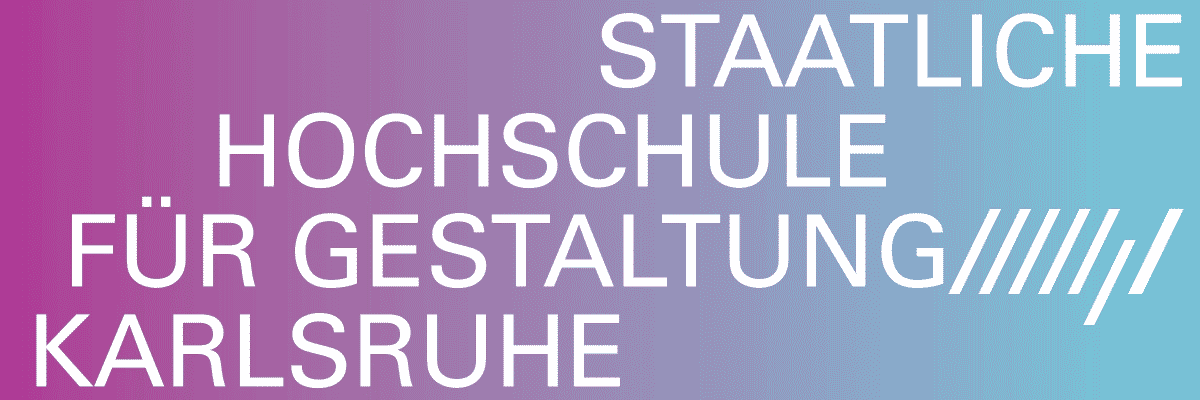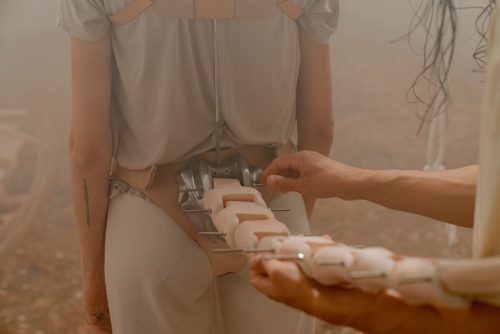
Groupshow
Cheirokmeta (Things Made by Hand)
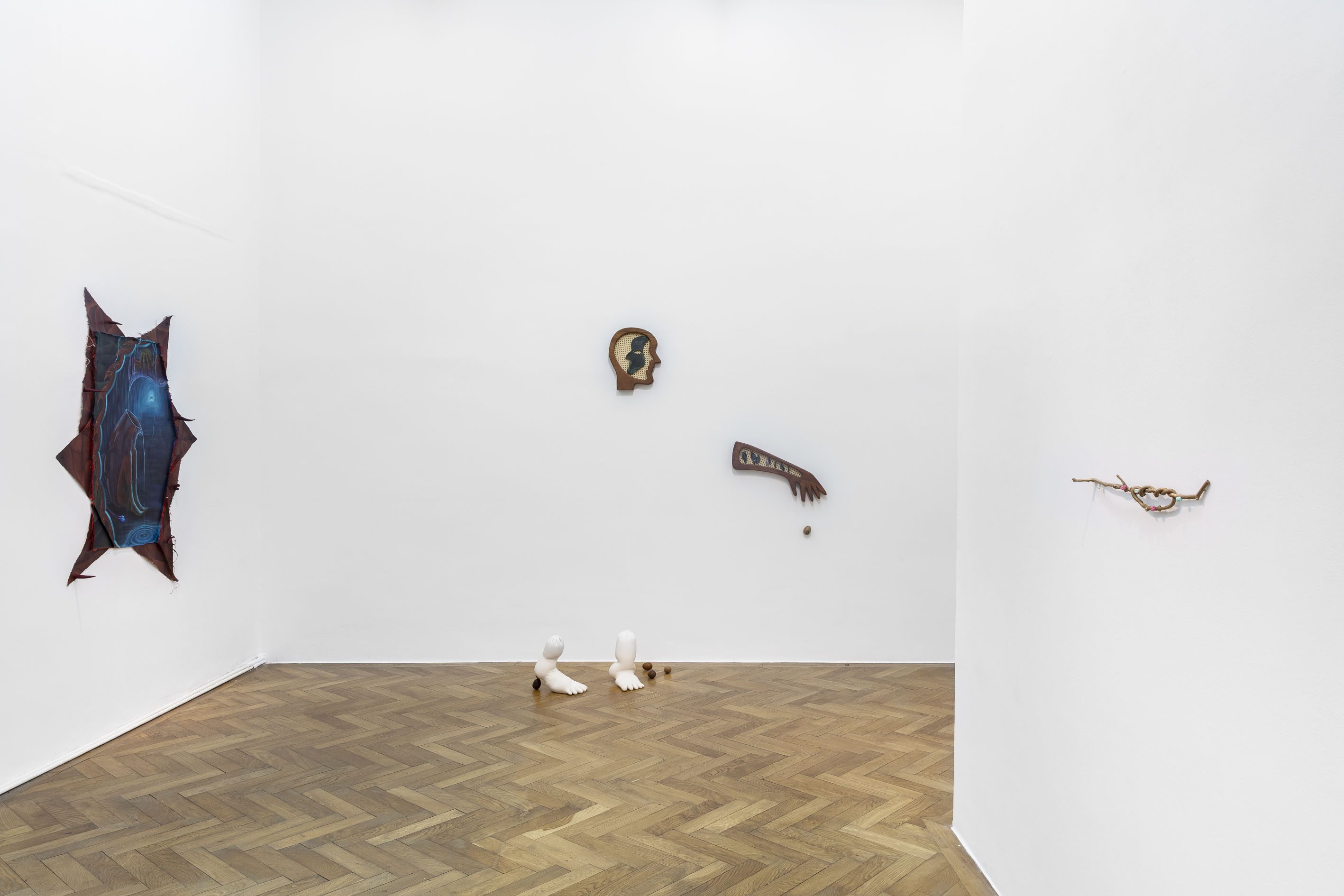
Cheirokmeta (Things Made by Hand), 2023, installation view, photo: Sebastian Kissel
Advertisement
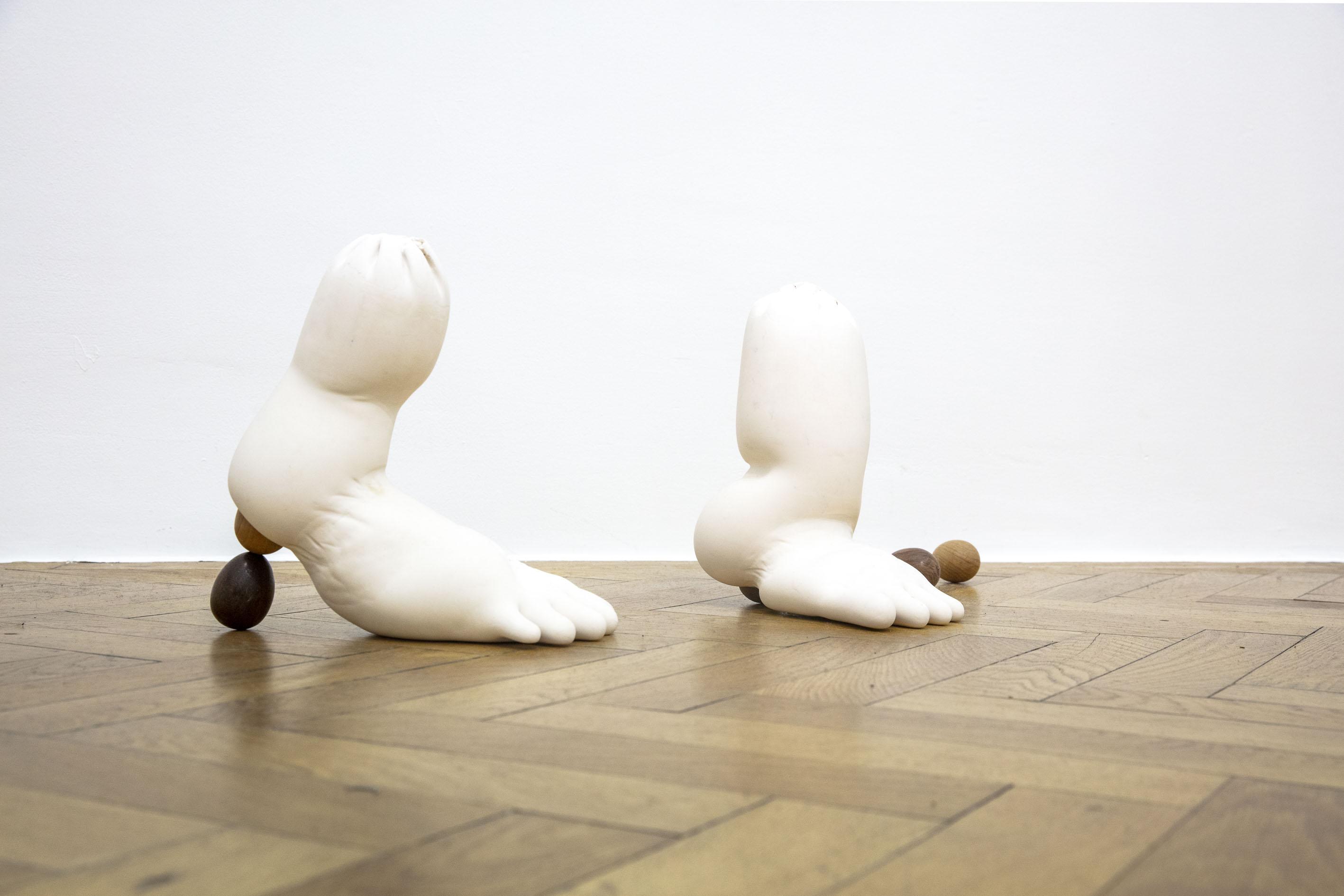
Anousha Payne, Surahonne/Mahdokt (Crushing Eggs), 2023, stoneware ceramic, metal hardware, tzalam (Mexican walnut), rattan, wooden eggs, jesmonite, dimensions variable
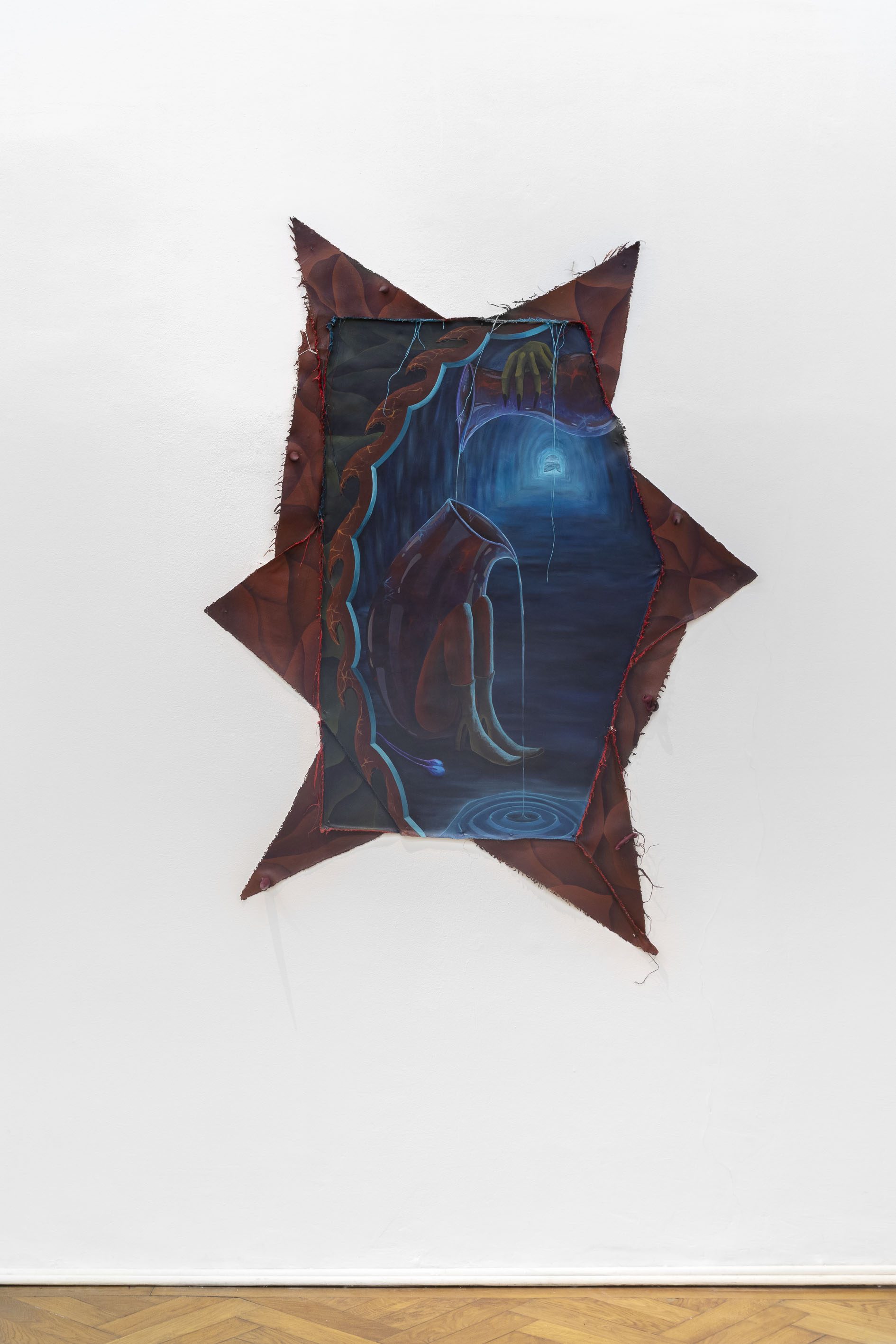
Dominika Dobiášová, The Cup Overflowed, 2021, acrylic on stitched canvas without frame modelling clay and cotton strings, 132 × 107 cm
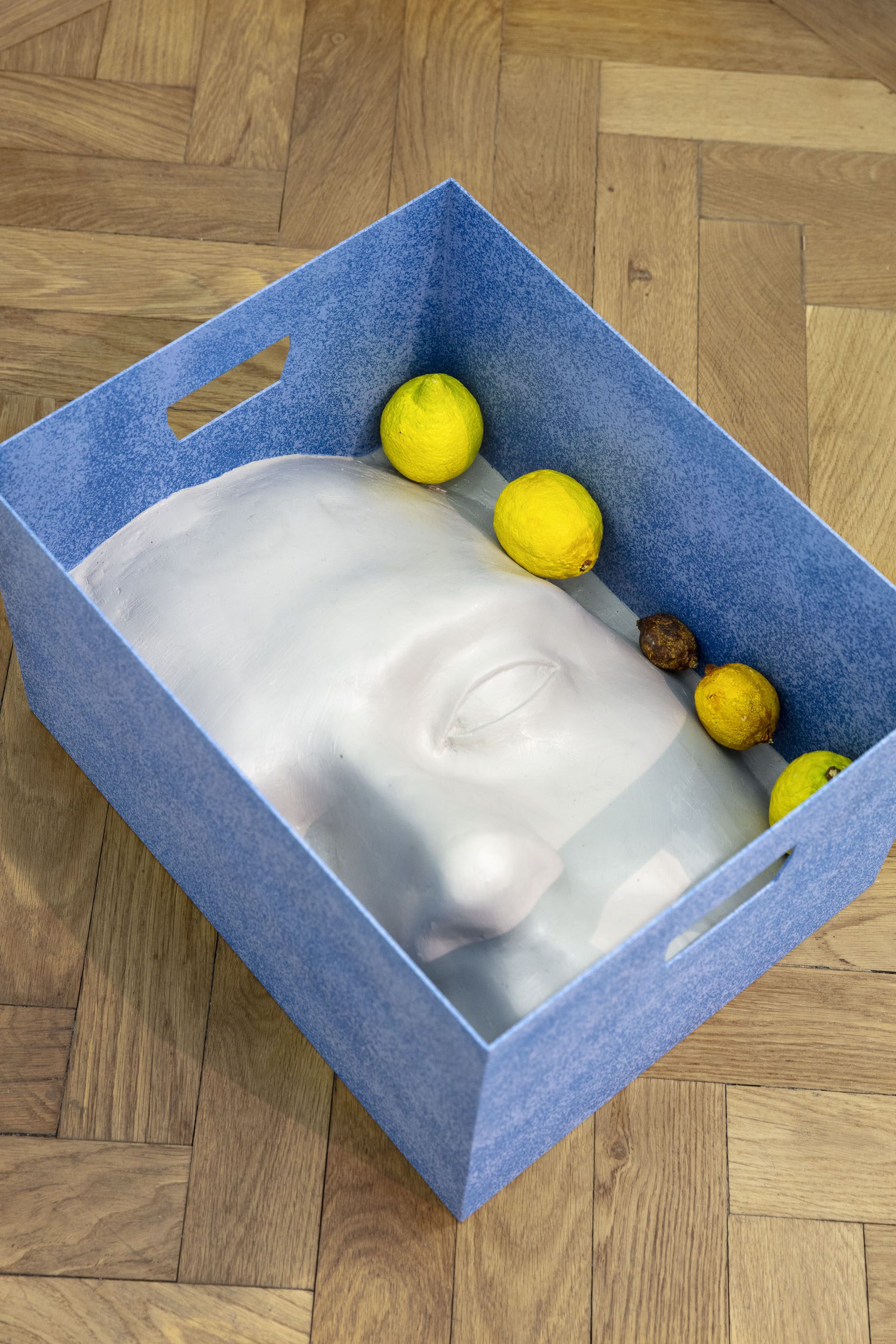
Hamish Pearch, Limbic Flare Archive (London Chalk), 2023, aluminium, enamel, resin, plaster polymer, oil paint, 30 × 35 × 45 cm, Courtesy of Hamish Pearch, Sperling, Munich and Sans titre, Paris
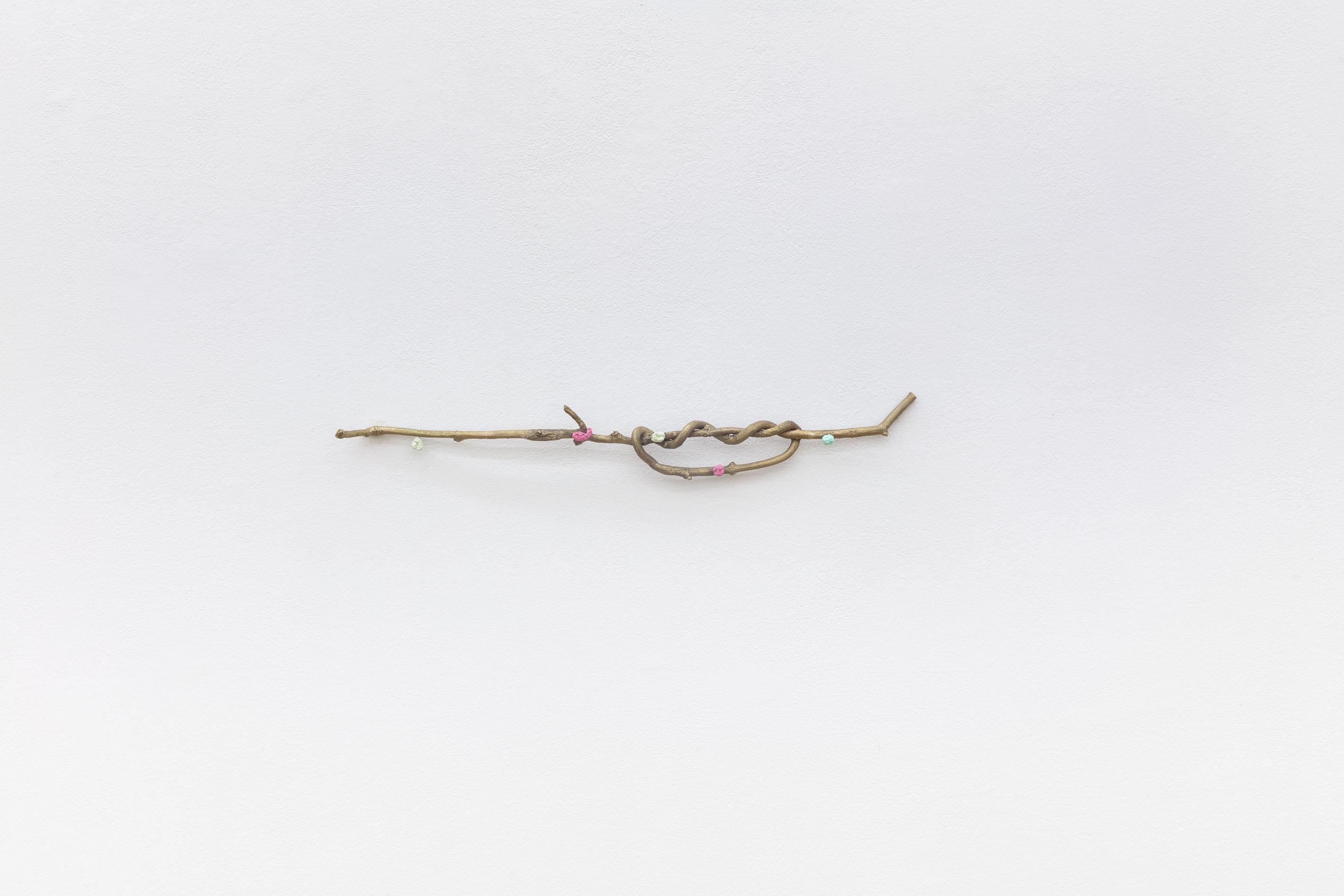
Hamish Pearch, Multiple Overhanded Soft Palate, 2023, bronze, paint, 6 × 52 × 3 cm, Courtesy of Hamish Pearch, Sperling, Munich and Sans titre, Paris
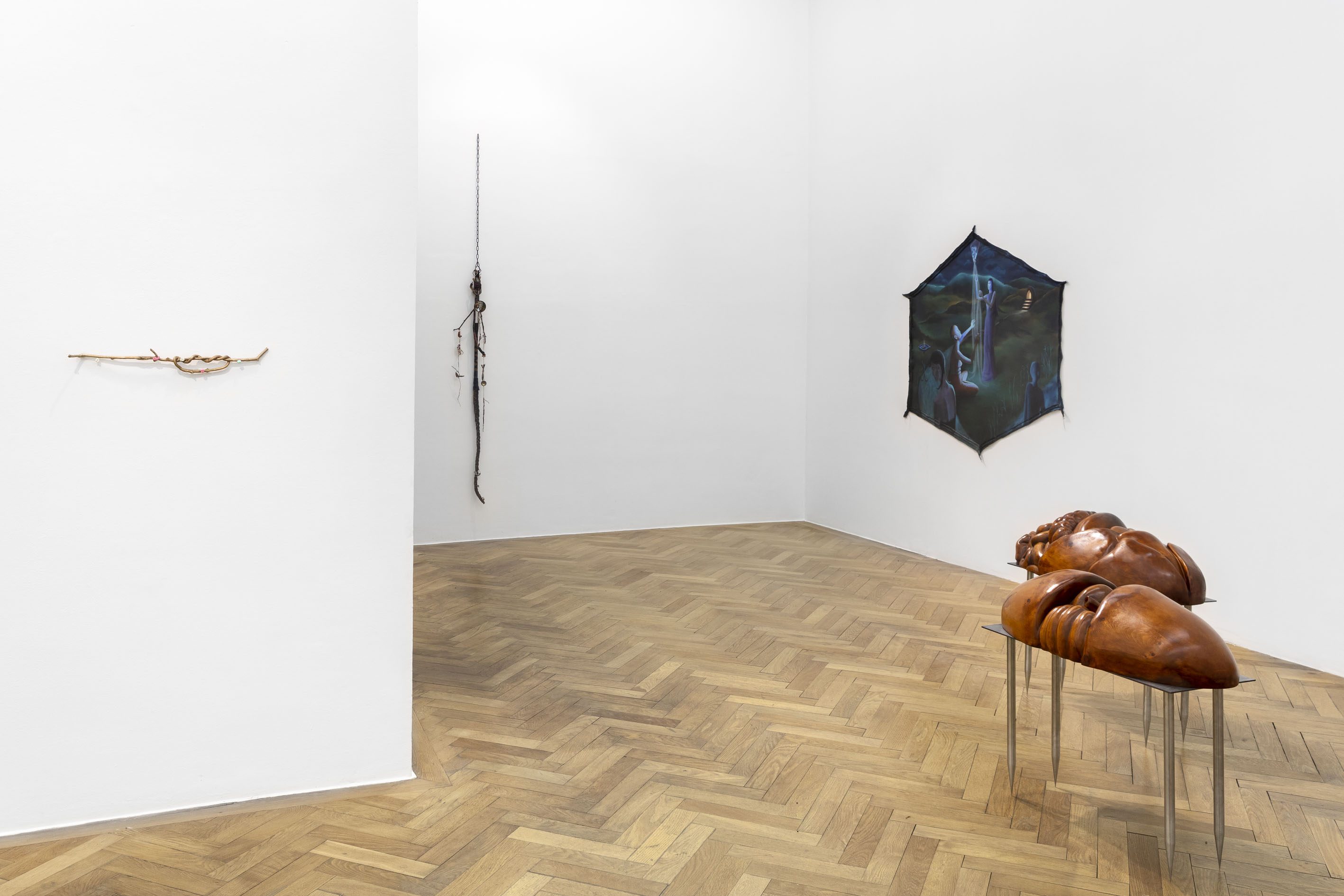
Cheirokmeta (Things Made by Hand), 2023, installation view, photo: Sebastian Kissel
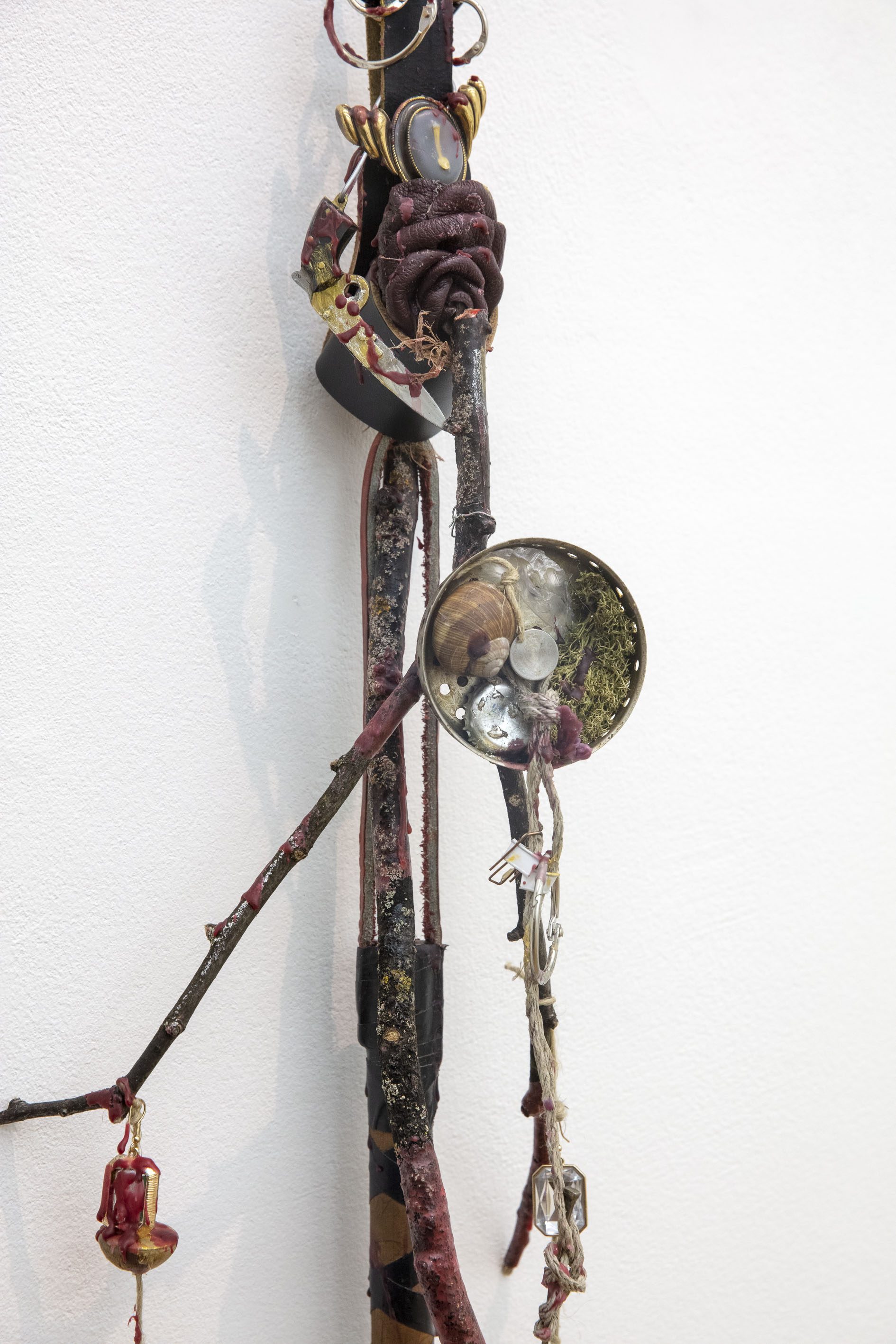
Anna McCarthy, Keychain, 2023, mixed media, wood, wax, jewellery, snail shell, moss, plastic hairclip, sink sieve, keyrings, present from suse, silver spoon, leather, gold & silver pigment, 260 × 25 × 10 cm
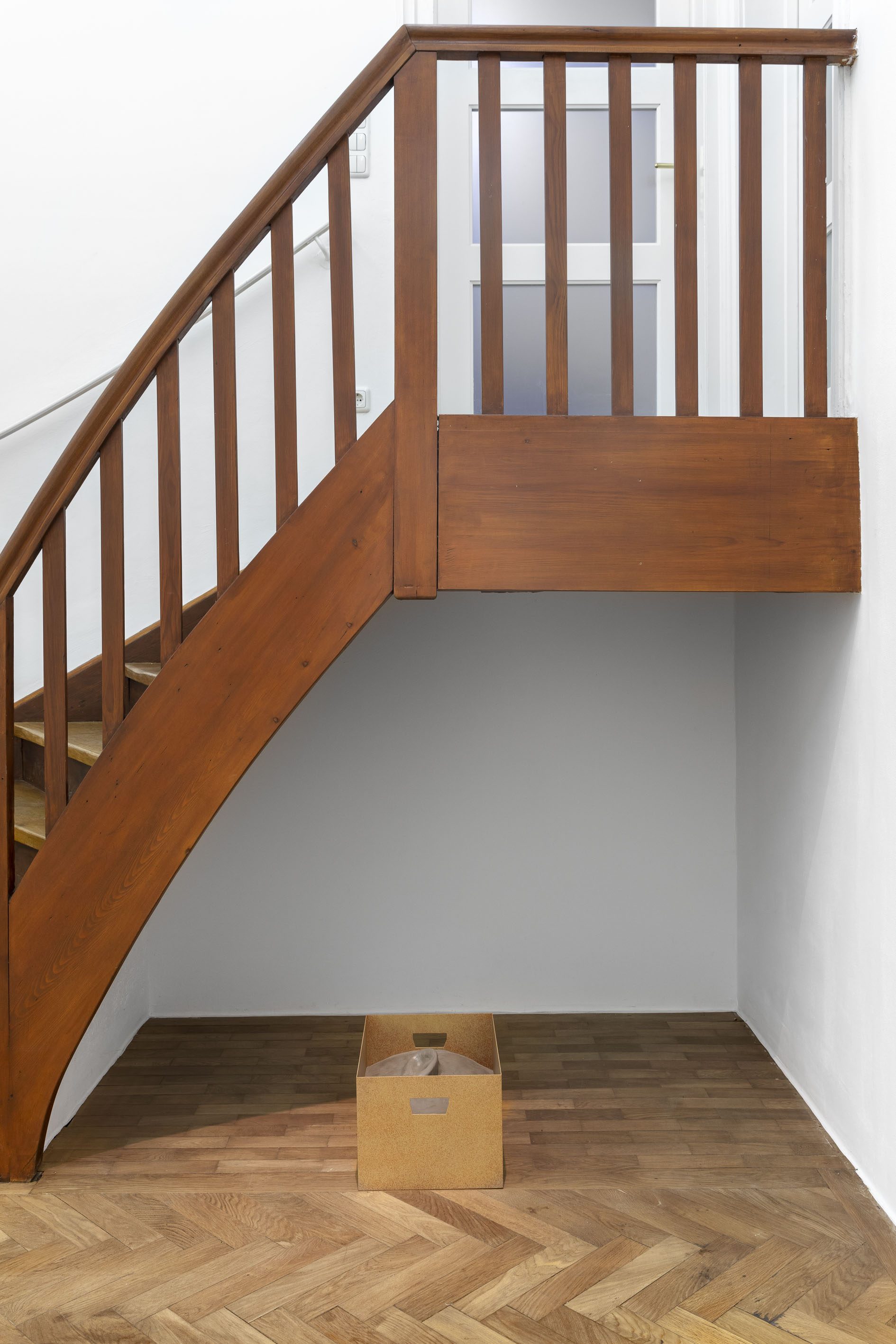
Hamish Pearch, Auditory Nerve Archive, 2021, steel, polymerised gypsum, oil paint, 42 × 32 × 26 cm, Courtesy of Hamish Pearch, Sperling, Munich and Sans titre, Paris
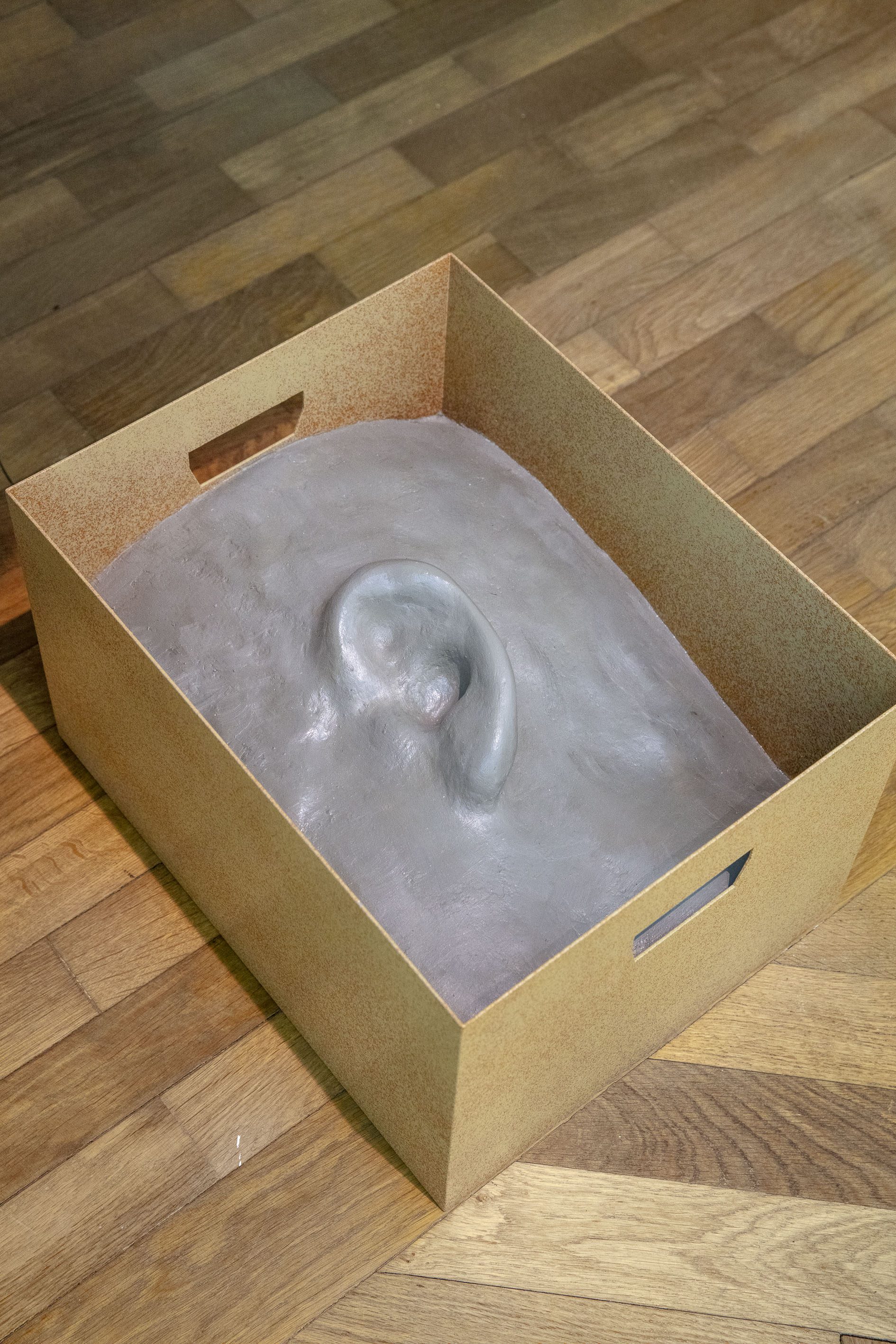
Hamish Pearch, Auditory Nerve Archive, 2021, steel, polymerised gypsum, oil paint, 42 × 32 × 26 cm, Courtesy of Hamish Pearch, Sperling, Munich and Sans titre, Paris
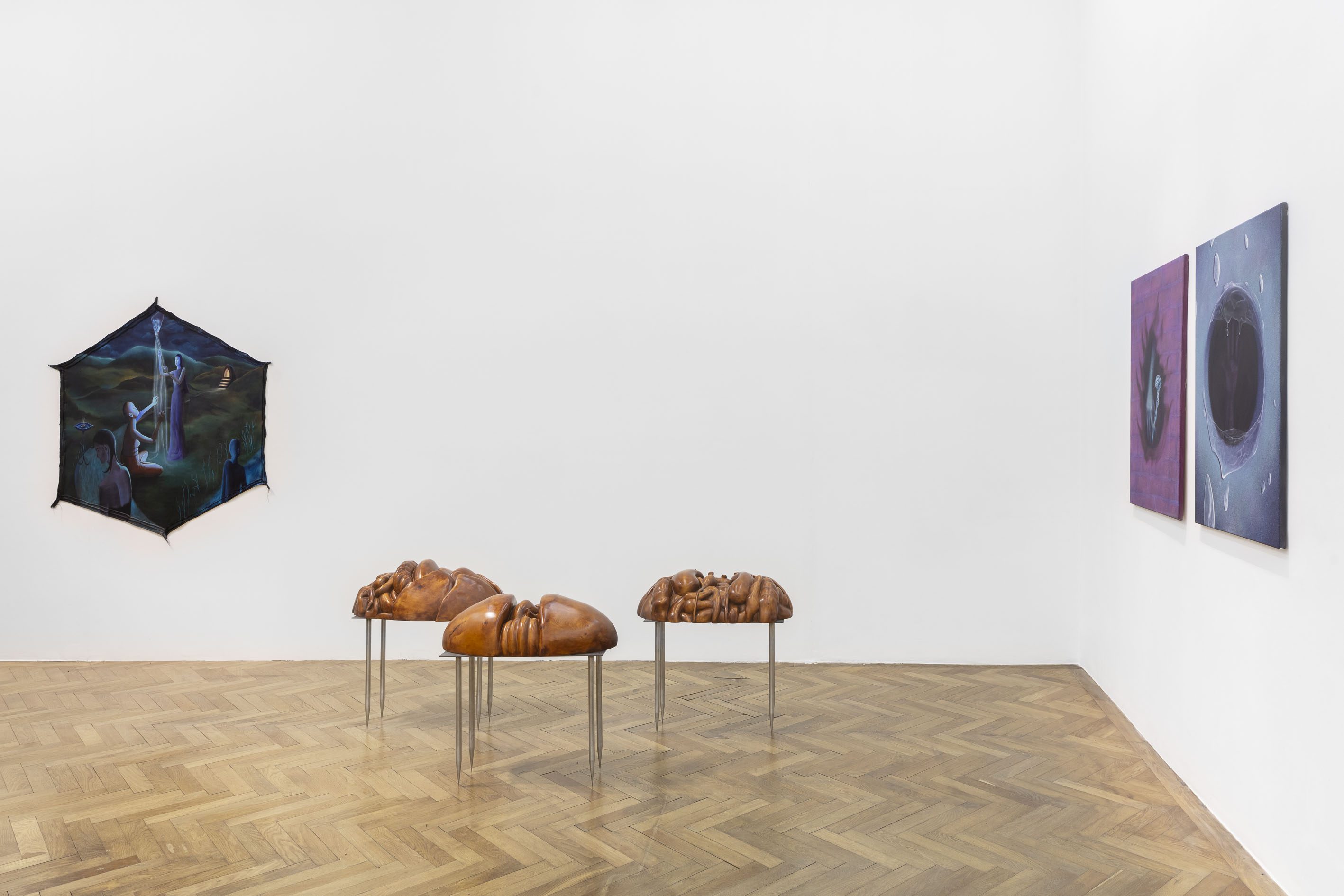
Cheirokmeta (Things Made by Hand), 2023, installation view, photo: Sebastian Kissel
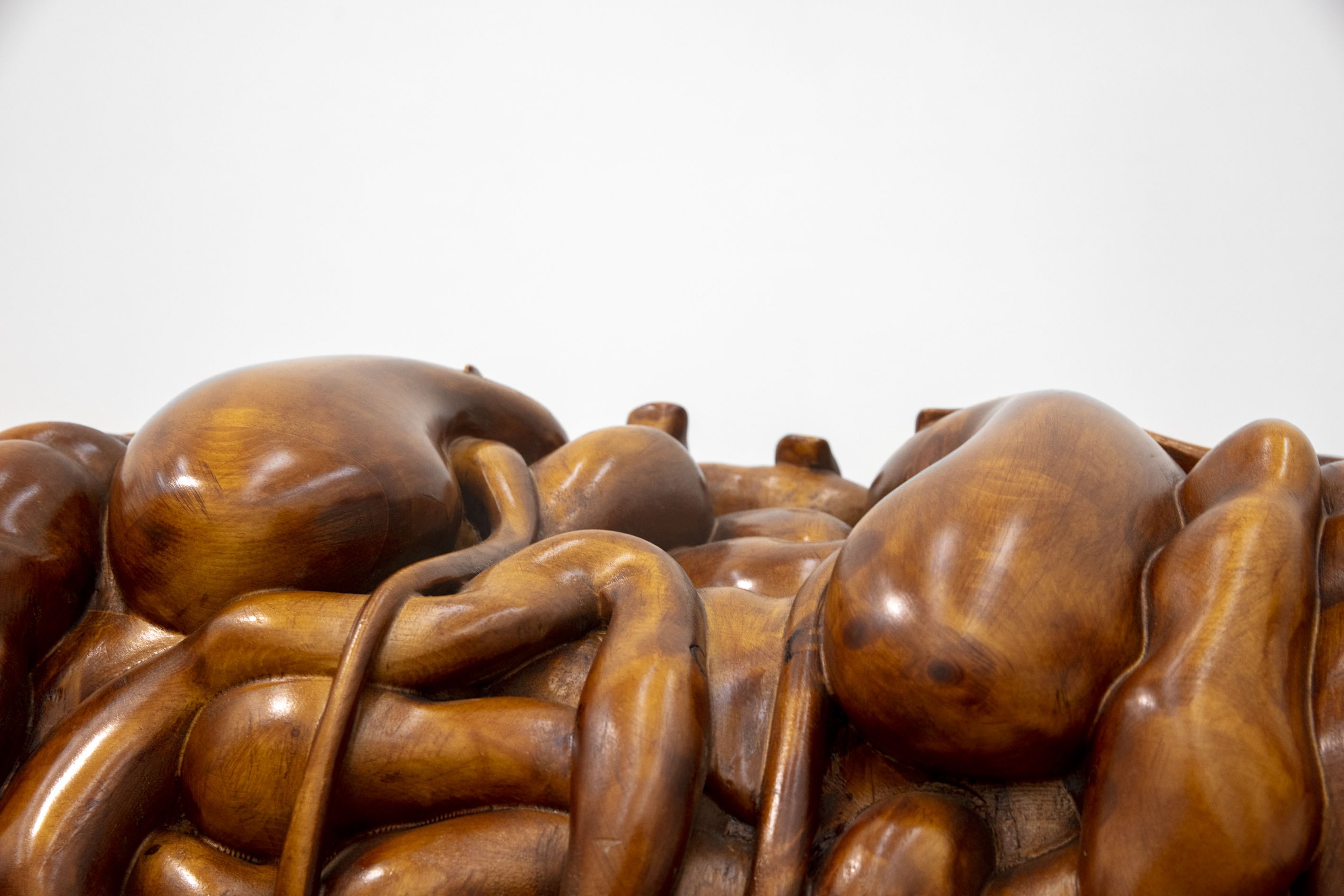
Pakui Hardware, Antidote, 2020, wood, stainless steel pedestal (50cm), ca. 20 × 80 × 40 cm, Courtesy the artists and Carlier | Gebauer (Berlin/ Madrid)
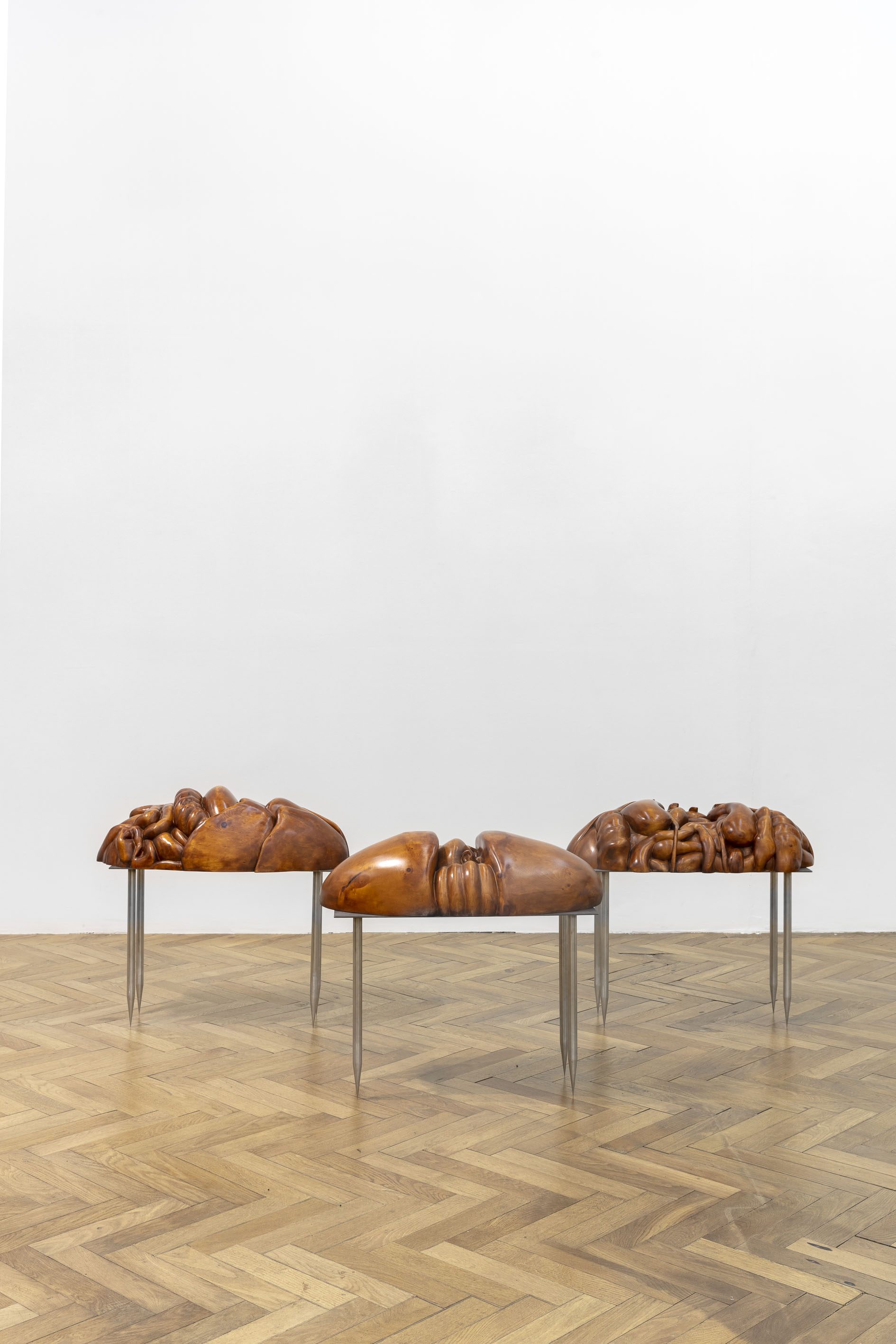
Pakui Hardware, Antidote, 2020, wood, stainless steel pedestal (50cm), ca. 20 × 80 × 40 cm, Courtesy the artists and Carlier | Gebauer (Berlin/ Madrid)
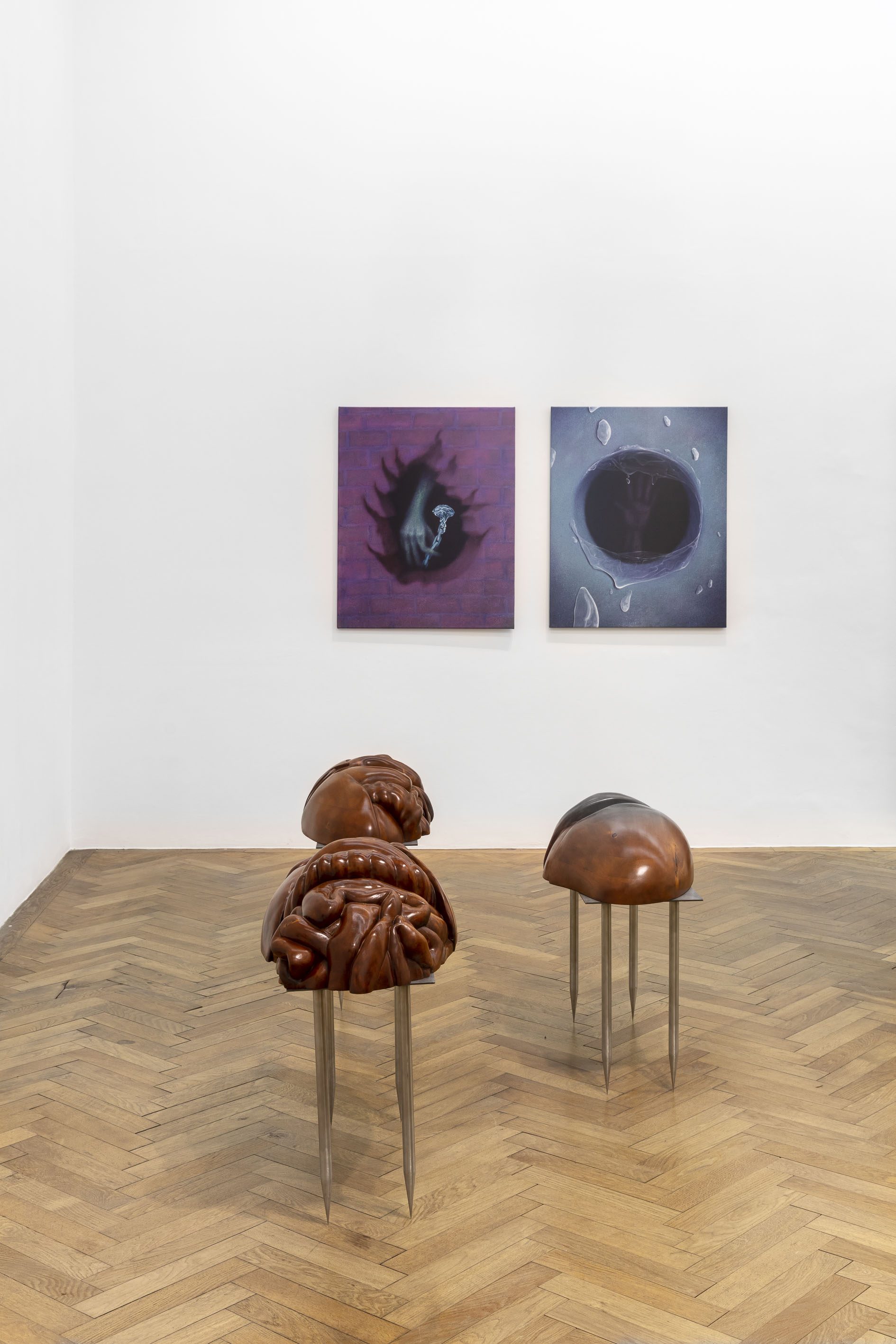
Cheirokmeta (Things Made by Hand), 2023, installation view, photo: Sebastian Kissel
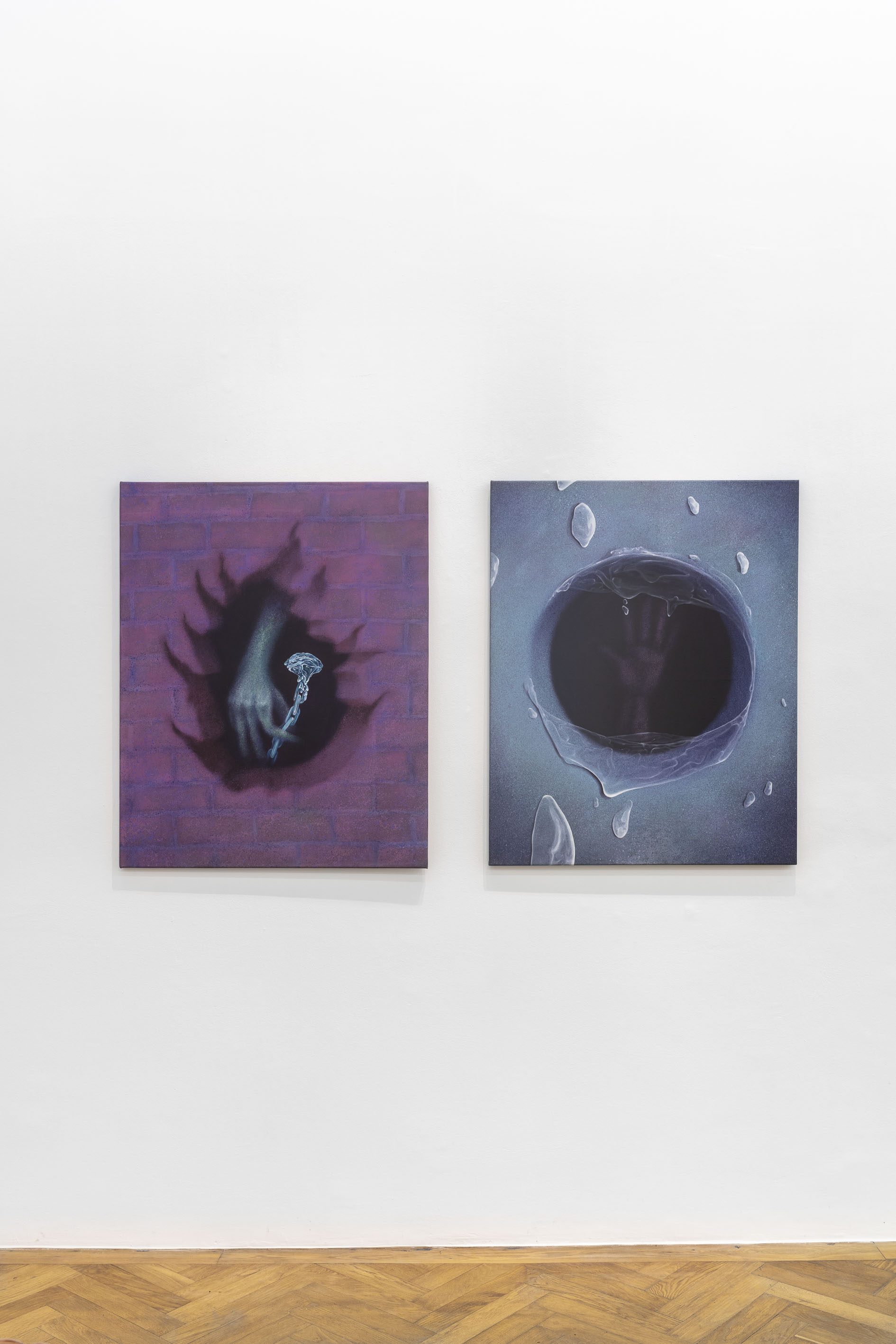
Ádám Horváth, left: A Warm Gesture from a Cold Hand, right: That Act Sublime, each 2019, acrylic on canvas, 100 × 80 cm
Dominika Dobiášová, Ádám Horváth, Anna McCarthy, Pakui Hardware, Anousha Payne, Hamish Pearch
Not all that glitters is gold. Alchemy never produced what it aimed for in its balancing act between science and magic, yet its search for the impossible remained momentous.
Zosimos of Panopolis, its most important representative in late antiquity, combined detailed scientific methods with mystical goals in his fragmentary collection of writings Cheirokmeta. His works, handed down mainly through Arabic and Latin translations (the difference between chemistry and alchemy is only the Arabic article Al [in German: Chemie, Alchemie]) describe ancient myths of suffering and redemption of man and are applied to the process of metal refinement. A red copper man (Chalkanthropos) is purified by the bath in the black broth to the silver man (Argyranthropos) and by the fire to the gold man (Chrysanthropos). The transmutation of the metals runs parallel to the inner transformation of the adept. The starting material of this alchemical practice is the quaternity of metals copper, iron, tin, and lead. These base metals must be transmuted into materia prima by decomposition. The union of two components is described as the marriage of the feminine with the masculine. An embryo (homunculus) is created, which matures for nine months and then sees the light of day. At last, a reorganization of the chaos is to take place, the fixing of the “fleeting spirits” and finally the completion of the work into gold.
Any form of occupation, if only pursued long enough, produces in time its own systems of knowledge. The Things Made by Hand described by Zosimos did not lead to the production of gold, but its utopian idea persisted. While alchemy dreamed of the control of nature through technology, a utopia of the present lies in preserving nature from the influence of the homo faber. The failed pursuit to produce precious metals artificially, is one of the reasons for centuries of exploitation of nature. The artistic positions in the exhibition ask, to what extent magic and technology can be seen not as opposing, but as coexisting.
Ádám Horváth’s (*1988, lives and works in Budapest, HU) visual language is based on a private biophilic mythology, informed by sensibilities such as illusion, healing, and transhumanism. The inherent love confession to nature is superimposed by an atmosphere of rootlessness and the search for home. Ádám’s visually clear language takes us to a mystic land full of familiar yet distinctive and unknown motifs. Nature and its various elements are inhabited by ciphers that are impossible to decode. His paintings and sculptures are hyper-organic, endowed with electrical networks similar to neurons in a brain.
Anna McCarthy’s (*1981, lives and works in Munich, DE) constantly seeks new forms to express topics that have collective relevancy as well as personal urgency. Her work is quick and dirty. Improvised and raw, charged with personal experience as a reflection of wider topics. Her sharp observation and wit challenge the status quo, always laughing, together with the viewer, in the face of fear. Her methods of production mirror the content – cheap materials, reusables, always in flux. She possesses a talent to astutely comment on societal ongoings whilst refraining from preaching, subtly dismantling power constructs as she goes. Her work is a modern-day amalgam of multilayered readings that take the viewer into a narration that weaves in and out of thought patterns in those similar to one’s own.
Anousha Payne (*1991, lives and works in London, GB) explores cultural identity through the interweaving of folktales, mythologies, personal experiences, and fictional narratives. Her work questions material hierarchies and animism. Both her contributions to Cheirokmeta are based on tales, the story collection Women without Men (1990) by Sharhnoush Parispur and the Indian folktale A Flowering Tree. A rattan head and an arm with ceramic leaves attached could depict the character of the stories in a pre-fertilised state. She throws her own eggs to the ground and crushes them under her feet. The eggs are found objects that were originally used as aids to darn socks.
Dominika Dobiášová’s (*1996, lives and works in Brno, CZ) paintings are full of subtly portrayed dream-like scenes of stylized figures which link together the world of fantasy and pop culture in an unconventional way. Do these worlds beg to be interpreted as reflections of literary genres? Can they simply be seen as fairy tales, fantasy, dystopian sci-fi, or even as social- critical novels? The interpretation is, of course, up to the viewer. They contain a multitude of symbols and references to be understood only by those in the know, however, the paintings will also capture the attention of those who do not understand their iconography and are “only” intrigued by their strong emotionality and aesthetic suggestiveness. The composition is that of a theatrical or movie mise-en-scene, it has thoroughly thought-out pictorial plans with expressively stylized characters, which are people as well as phantoms and things. The scenes set in a distorted space with dramatic lighting have an eclectic atmosphere: they are reminiscent of various schools such as Pre-Raphaelites, Surrealists, Art Nouveau, and Romanticism.
Hamish Pearch (*1993, lives and works in London, GB) tests the materials, objects, and spaces that make up our worlds. Through sculpture, installation, drawing, and sound, his artistic practice gives form to human experiences and systems that are mundane and magical in equal measure. Pearch’s sculptures mix, merge and remake forms to create objects of instability. Found objects, natural forms, and commonplace materials are used alongside cast and modeled sculptures made from jesmonite and resin. In Cheirokmeta, his humanoid fragments evoke the alchemistic desire to artificially produce a human, called homunculus.
Pakui Hardware is the name for collaborative artist duo Neringa Cerniauskaite and Ugnius Gelguda (*1984 and *1977 in Lithuania, live and work in Berlin, DE), which began in 2014. Pakui Hardware refers to Pakui – special attendant of Hawaiian Goddess, a runner who could circle an island six times in a day, thus embodying velocity and mythology, and Hardware which stands for materiality, bodies, and resources. The duo's work explores plasticity of bodies, their yet-undiscovered potentials. They trace how diverse technologies expand, test and control these bodily promises. Hybrid materials that the artists employ correspond to hybrid bodies that surround us. These questions are analyzed through such examples as invasive and transformative relationship to bodies, automation, synthetic biology, and new materiality. Three pieces, entitled Antidote, are part of Cheirokmeta. Wooden sculptures based on the artists’ signature language organic and biomorphic forms resemble medieval woodcarvings yet were made by a robotic hand entirely and also feature reshuffled and re-scaled human anatomical elements.
Raimund Kühnel

